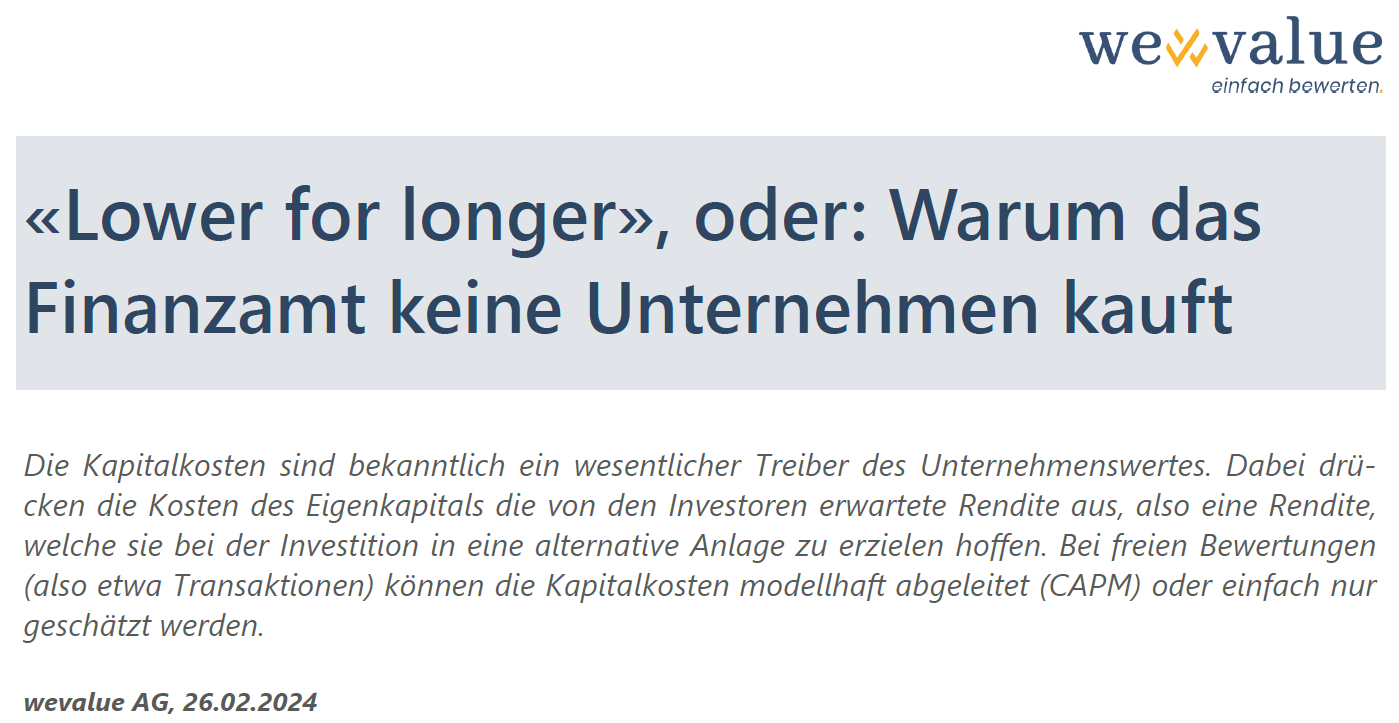“Lower for longer”, or: Why the tax office doesn’t buy companies

The cost of capital is known to be a key driver of company value. The cost of equity expresses the return expected by investors, i.e. the return they hope to achieve by investing in an alternative investment. In the case of free valuations (e.g. transactions), the cost of capital can be derived using a model (CAPM) or simply estimated.
Capital costs provided for by the tax office
The situation is different for tax valuations. Here, the cost of capital is determined by the tax administration (Switzerland) or the tax law (Germany). Section 203 (1) of the German Valuation Act (BewG), for example, stipulates a multiplier of 13.75, which corresponds to a capitalization rate of 7.27%. This has remained unchanged since 2016. In Switzerland, the cost of capital is recalculated by the Swiss Tax Conference. Currently (i.e. for valuation dates from and including 31.12.2023), these are set at 7.75% (after 8.50% for 2022 and 9.50% for 2021).
Read the full blog post here.

